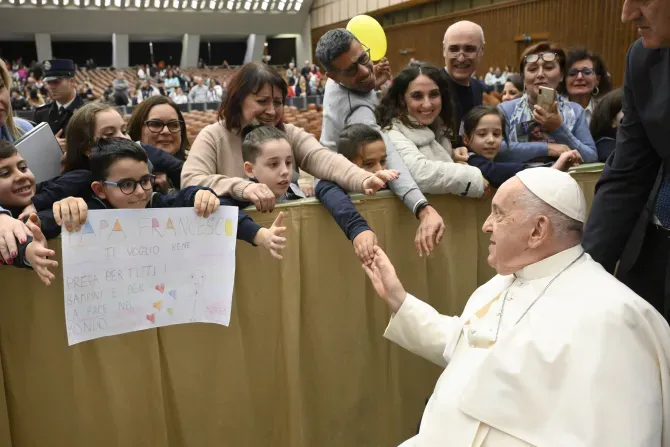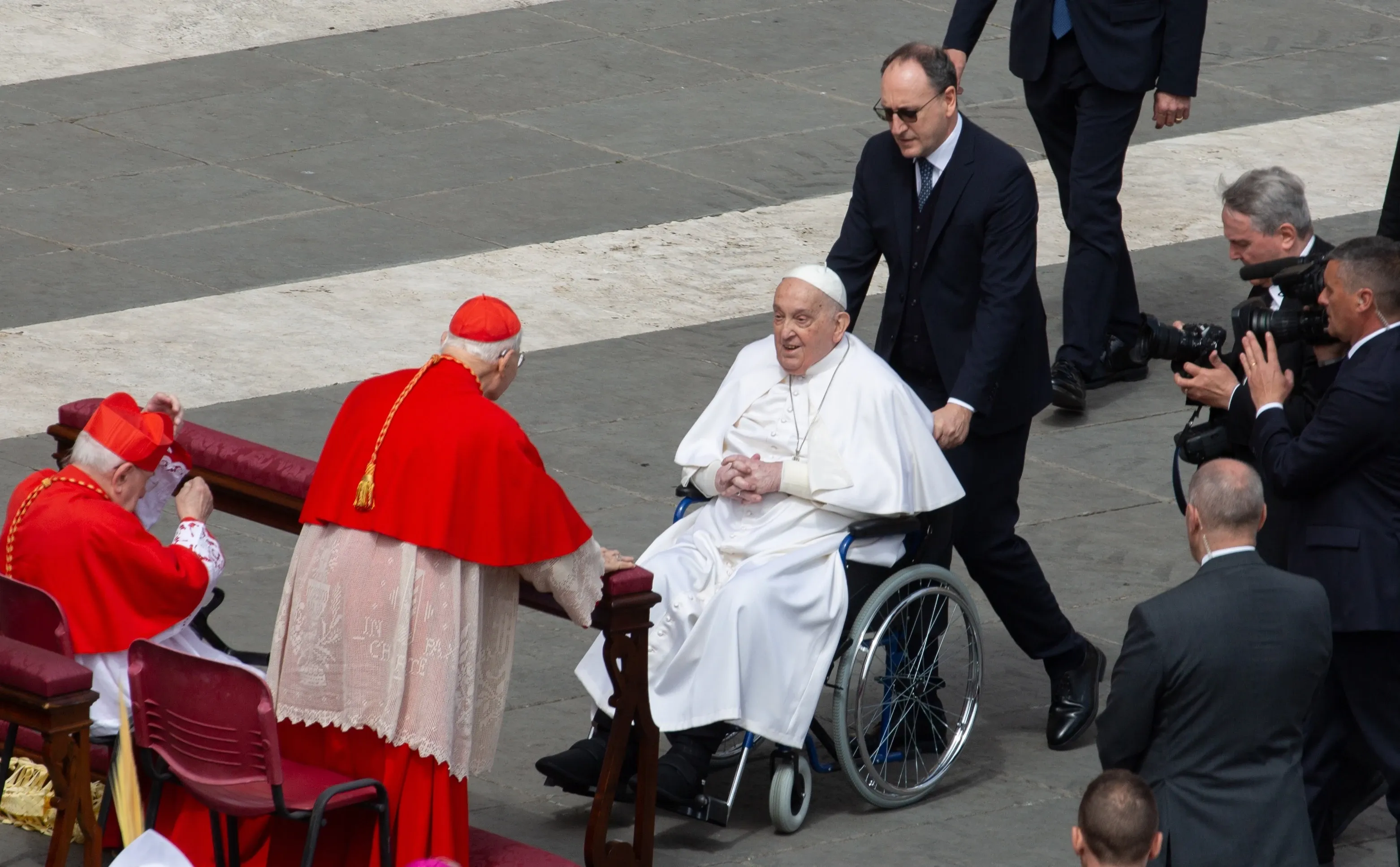One unique feature today, however, is that “we could even say that we find ourselves in the first civilization in history that globally seeks to organize a human society without the presence of God, concentrated in huge cities that remain horizontal despite their vertiginous skyscrapers,” the pope observed.
In this search for “the efficiency of the collective” there is instead a desire “that absorbs the uniqueness of each into a bubble of uniformity.”
But these tendencies “are dangerous, alienating, destructive ambitions” specifically in the context of the present moment as this “cohesion, instead of fraternity and peace, is often based on ambition, nationalism, homologation, and techno-economic structures that inculcate the persuasion that God is insignificant and useless: not so much because one seeks more knowledge, but above all for the sake of more power.”
 Pope Francis greets members of the public attending his weekly general audience in Paul VI Hall in Vatican City on Nov. 29, 2023. Credit: Vatican Media
Pope Francis greets members of the public attending his weekly general audience in Paul VI Hall in Vatican City on Nov. 29, 2023. Credit: Vatican Media
Cognizant of these challenges, Pope Francis suggested that Evangelii Gaudium, his 2013 apostolic exhortation on the proclamation of the Gospel in today’s world, offers a potential antidote to this now ubiquitous tendency, saying there must be “an evangelization capable of shedding light on these new ways of relating to God, to others, and to the world around us, and inspiring essential values. It must reach the places where new narratives and paradigms are being formed, bringing the word of Jesus to the inmost soul of our cities.”
Pope Francis noted that the proclamation of the Gospel is not merely an abstract project, nor is it just a “repetition of an acquired style, but testimony that the Gospel is alive today here for us.” Instead, it is built upon dialogue that requires “frequenting the spaces where one suffers, works, studies, and reflects, inhabiting the crossroads where human beings share what has meaning for their lives.”
“It means being, as a Church, a leaven for dialogue, encounter, unity. After all, our own formulations of faith are the fruit of dialogue and encounter among cultures, communities, and various situations," he continued.
“We must not fear dialogue: On the contrary, it is precisely confrontation and criticism that help us to preserve theology from being transformed into ideology.”
At the end of the audience the Holy Father repeated his call for peace and prayers for those who continue to suffer due to the Israel-Hamas war.




 Pope Francis greets members of the public attending his weekly general audience in Paul VI Hall in Vatican City on Nov. 29, 2023. Credit: Vatican Media
Pope Francis greets members of the public attending his weekly general audience in Paul VI Hall in Vatican City on Nov. 29, 2023. Credit: Vatican Media



